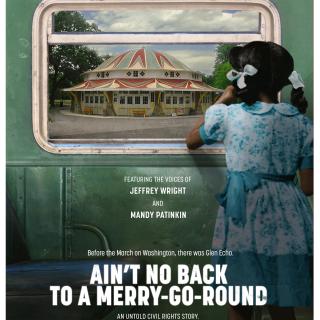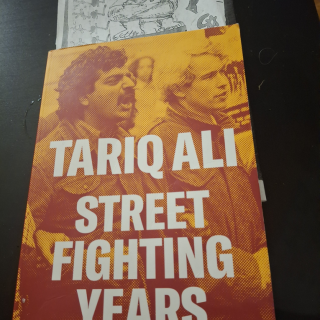Advertisement
When you’re living in a foreign land, human connections can be as precious as they are rare. Maybe that’s the message of Constance Tsang’s debut feature film, Blue Sun Palace.
Then again, maybe it’s not. Writer/director Tsang doesn’t force an interpretation on you, any more than she tells you what to think of her characters, all Chinese or Taiwanese immigrants eking out a living in Queens, New York. She merely invites you to sit back and watch their stories unfold.
In the case of one of them, their story doesn’t unfold nearly long enough.
We first meet a young woman named Didi (Haipeng Xu) when she’s sharing a restaurant meal with Cheung (Kang-sheng Lee), a somewhat older man who seems to be a good friend and maybe a future boyfriend. The two clearly enjoy each other’s company, and Didi even invites Cheung to spend the night after he misses the last bus home.
The next morning, however, the couple’s relationship seems less certain. When Cheung begins talking about possibly sharing a home someday, Didi jokingly shuts him down, saying her ultimate plan is to move to Baltimore and open a restaurant with her friend Amy (Ke-Xi Wu).
We then learn that Didi and Amy, along with two other immigrant women, manage and work at a massage parlor—a neighborhood business that claims it doesn’t offer sexual services even though we’ve seen evidence to the contrary. Since Cheung is one of the parlor’s clients, the exact nature of his relationship with Didi becomes even more nebulous.
What isn’t nebulous is that Didi is the heart and soul of the parlor’s little community, keeping the other women’s spirits up and organizing dinners that remind them of the traditions and families they left behind. This makes it all the more devastating when Didi suddenly disappears from the story due to a tragic development that thankfully is left off-screen.

Amy (Ke-Xi Wu) wonders what to do about the leaking ceiling in her Queens massage parlor.
From then on, the film changes its focus to Amy and Cheung and their struggles to deal with Didi’s departure. In the process, they reveal a little more about themselves. We learn, for example, that Cheung has a wife and daughter in Taiwan but seems either unable or unwilling to be reunited with them.
Tentatively, Amy and Cheung begin spending time together. Do they feel a real connection, or are they merely trying to fill the emptiness left by Didi’s loss? Tsang’s script neither judges the characters nor explains all their motives, but it does supply an ending that ties up enough loose ends to be satisfying.
A film that avoids overt sentimentality and proceeds at its own pace, Blue Sun Palace is not for every taste. But it has multiple charms, including a wonderful cast giving understated, naturalistic performances.
Mix in Sami Jano’s subtle musical score, Caitlin Carr’s unhurried editing and Norm Li’s elegant cinematography, and you end up with a calm viewing experience that may remind some of the great Japanese director Yasujiro Ozu.
Who knows? Maybe someday people will be talking with equal reverence about the films of the great Chinese American director Constance Tsang.
Rating: 4 stars (out of 5)
Blue Sun Palace (no MPA rating) opens April 25 in New York and Los Angeles, with further screenings planned in subsequent weeks. It is scheduled to screen at 9:30 p.m. May 9 at the Gateway Film Center in Columbus.



